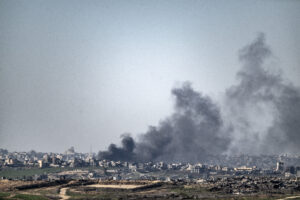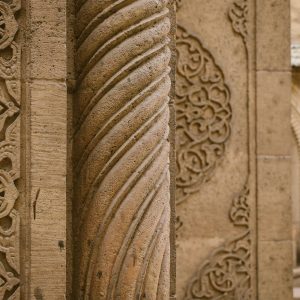Iraq political gridlock persists after bloody unrest
Baghdad, Iraq (AFP):
The political crisis in Iraq continues despite efforts for negotiations after nearly 24 hours of deadly violence between rival factions ended.
Baghdad’s highly-secured Green Zone returned to normalcy after 30 people were killed and 570 wounded in the clashes pitting supporters of powerful Shiite cleric Moqtada Sadr against other pro-Iran factions.
Since elections in October 2021, political deadlock has left Iraq without a new government, prime minister or president, due to disagreement over the formation of a coalition.
The tensions escalated sharply on Monday when Sadr loyalists stormed the government palace inside the Green Zone following their leader’s announcement that he was quitting politics.
However, Sadr’s supporters trickled out of the Green Zone in a steady stream on Tuesday afternoon when he appealed to them to withdraw within the hour.
A nationwide curfew was lifted, shops reopened and traffic returned to Baghdad’s streets on Wednesday as the government announced the resumption of school exams postponed by the unrest.
However, the hurdles obstructing a solution to Iraq’s political crisis remained firmly in place, with rival powers refusing to budge on their demands.
Early elections, less than a year after the last polls, and the dissolution of parliament have been a key demand by Sadr.
Iraqi President Barham Saleh said late Tuesday that ‘snap elections’ could provide “an exit from the stifling crisis”.
Under the constitution, parliament can only be dissolved by a majority vote, which can take place at the request of a third of lawmakers, or by the prime minster in agreement with the president.
Sadr’s rivals in the pro-Iran Coordination Framework want a new head of government to be appointed before any new elections are held.
On Tuesday, they called for the swift formation of a new government, “to prevent a recurrence of the strife” that paralysed Baghdad this week.
The Framework urged parliament and other state institutions to “return to exercising their constitutional functions and carry out their duties towards citizens”.
The statement drew the ire of a senior aide of Sadr, Saleh Mohammad al-Iraqi, who said it overlooked the rightful demands of protesters killed in the Green Zone who want parliament dissolved.
“Iran should rein-in its Iraqi camels, or else there will be little room left for regret,” he said Wednesday, referring to the Coordination Framework.
Prime Minister Mustafa al-Kadhemi, meanwhile, threatened to resign unless the paralysis ends.
“If they want to continue to stir up chaos, conflict, discord and rivalry… I will take the moral and patriotic step and vacate my post,” he said.
Iraqi political analyst Sajad Jiyad said a return to violence was possible in the absence of a longer term solution.
“The biggest loser is the state, standing idly by while two powerful armed parties continue to struggle for control,” he said.
“Unless a proper solution is reached, more protests and violence are possible.”










